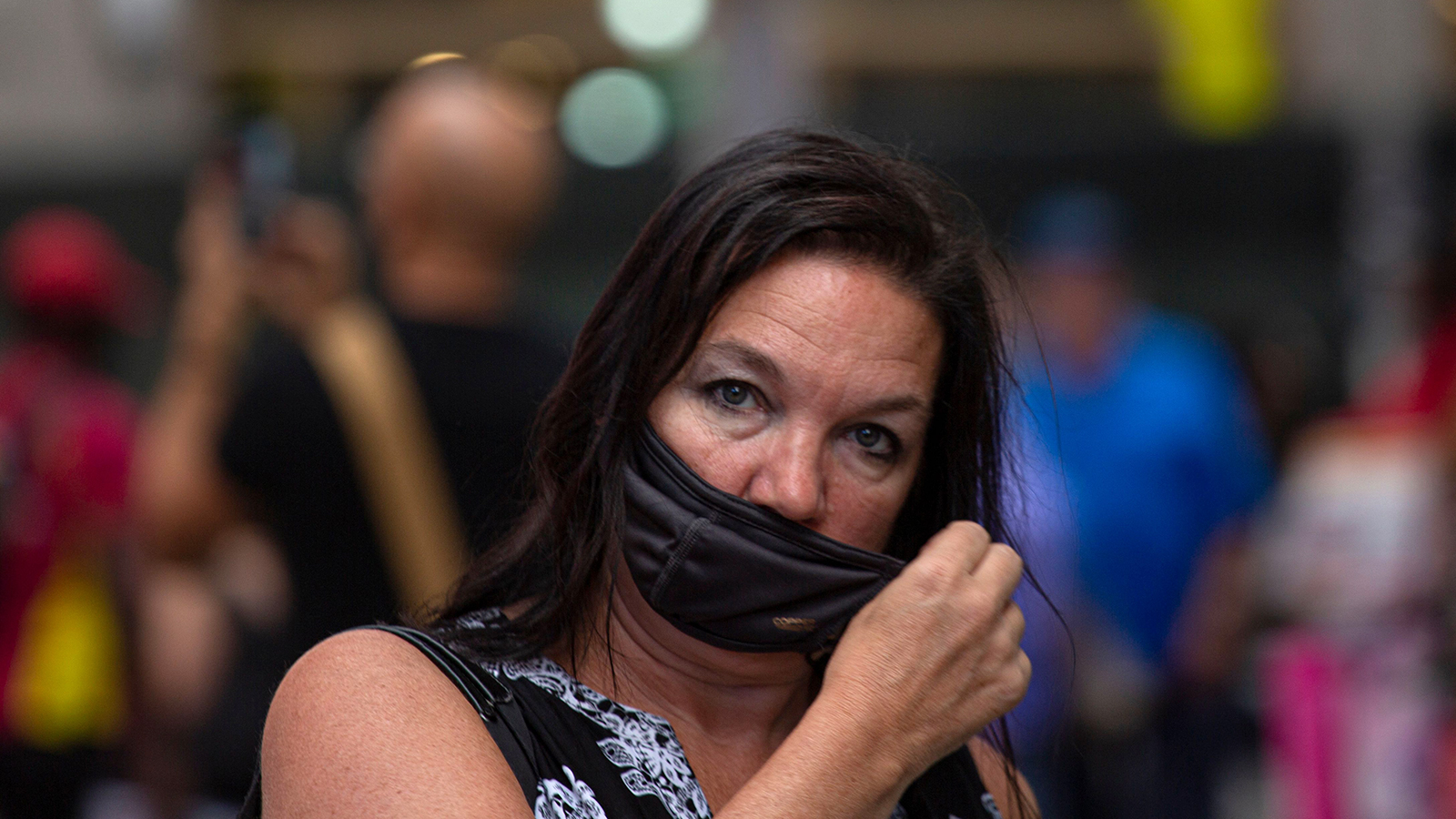Dr. Sanjay Gupta says CDC study shows Delta variant is ‘really contagious,’ but vaccines work

A new study shows the Delta coronavirus variant produced similar amounts of virus in vaccinated and unvaccinated people if they get infected – illustrating a key motivation behind the federal guidance that now recommends most fully vaccinated Americans wear masks indoors.
Experts say that vaccination makes it less likely that you’ll catch Covid-19 in the first place – but for those who do, this data suggests they could have a similar tendency to spread it as unvaccinated people.
“High viral loads suggest an increased risk of transmission and raised concern that, unlike with other variants, vaccinated people infected with Delta can transmit the virus,” Dr. Rochelle Walensky, director of the US Centers for Disease Control and Prevention, said in a statement Friday.
The study, published by CDC Friday, describes 469 Massachusetts residents who were infected in a July outbreak in Barnstable County, which includes the summer vacation destination Provincetown. No deaths were reported among them.
About 74% — or 346 cases — had been fully vaccinated. Of those cases, 79% reported symptoms. Genetically sequenced cases revealed the Delta variant as the main culprit.
The researchers found evidence that viral loads were similar among 127 fully vaccinated people and 84 others who were unvaccinated, partially vaccinated or whose vaccination status was unknown. Viral load is a proxy for how likely someone might be to transmit the virus to others.
The finding that the Delta variant resulted in similar viral loads “was a pivotal discovery leading to CDC’s updated mask recommendation,” Walensky said Friday.
On Tuesday, Walensky previewed these findings while unveiling guidance that people in areas with “high” or “substantial” Covid-19 transmission should resume wearing masks indoors. More than 75% of the US population live in these areas.
Although these findings motivated CDC to update its guidance, the study notes that Barnstable County was not one of those areas until the outbreak. Between July 3 and 17, daily new cases rose from a 14-day average of 0 to 177 cases per 100,000 residents.
The study suggests that “even jurisdictions without substantial or high COVID-19 transmission might consider expanding prevention strategies, including masking in indoor public settings regardless of vaccination status.”
CNN previously reported on the outbreak connected to Provincetown. In total, at least 882 cases have been linked to the cluster so far �� about 60% of whom were Massachusetts residents, according to local officials.
A source familiar with the CDC’s decision to update its recommendations previously told CNN that, in addition to the viral load findings, the overall prevalence of Delta and lower-than-hoped vaccine uptake played key roles in the latest iteration of the guidance.
![]()


